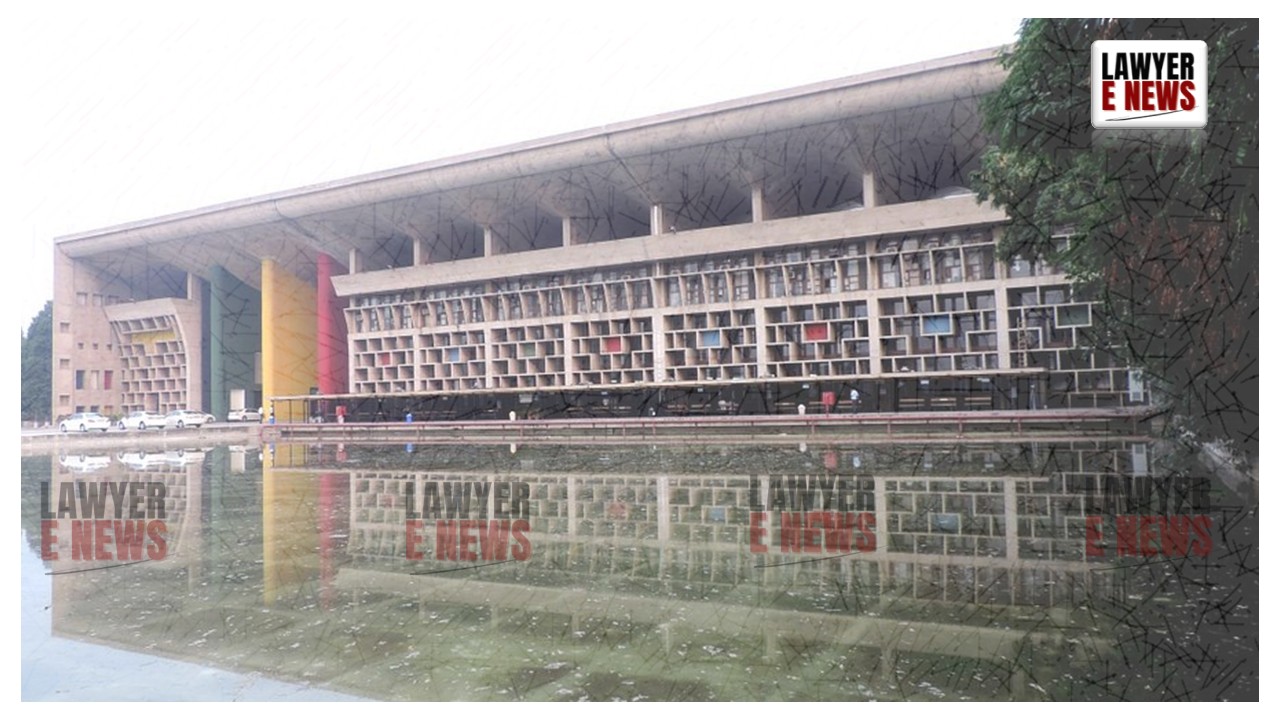-
by Admin
16 February 2026 10:43 AM



Punjab and Haryana High Court, presided over by Justice Sureshwar Thakur and Justice Sudeepi Sharma, delivered a landmark judgment in Virender Singh v. State of Haryana and Another, Civil Writ Petition No. 25140 of 2024 (O&M). The Court ordered the Enforcement Directorate (ED) to arrest Dharam Singh Chhoker, a member of the Haryana Legislative Assembly and candidate for re-election, who had been evading arrest despite multiple non-bailable warrants. The directive was issued with a caveat: the arrest should proceed unless the Supreme Court issued an order of stay or quashing. This ruling addressed significant lapses in executing judicial orders and affirmed the Court's role in upholding the rule of law.
The petitioner, Virender Singh, a registered voter in the Samalkha constituency, approached the High Court under Articles 226 and 227 of the Constitution of India. He sought a writ of mandamus compelling the ED to act on existing non-bailable warrants against respondent No. 5, Dharam Singh Chhoker, who was facing numerous allegations including financial crimes and forgery under the Indian Penal Code (IPC) and the Prevention of Money Laundering Act, 2002 (PML Act). Singh argued that Chhoker had continued his election campaign openly, despite ongoing criminal investigations and judicial orders.
Key allegations in the petition involved multiple FIRs and ECIRs related to fraudulent real estate activities involving companies controlled by Chhoker. Notably, FIR No. 152 dated June 1, 2023, filed at P.S. Rajendra Park, Gurugram, accused Chhoker of forging land agreements to secure licenses for a housing project. Other FIRs alleged the use of fake bank guarantees and misrepresentation in obtaining project licenses.
Non-Execution of Arrest Warrants: The Court was highly critical of the ED's failure to act on non-bailable warrants. It highlighted Section 73 of the Code of Criminal Procedure, 1973 (Cr.P.C.), which empowers Magistrates to issue warrants for the arrest of individuals accused of non-bailable offenses who are evading arrest. The judgment underscored:
"The issuance of multiple non-bailable warrants that remain unexecuted despite sufficient grounds and judicial approval indicates a lapse in law enforcement."
Right to Voter Information and Affidavit Violations: The petitioner also contended that Chhoker’s election affidavit was misleading and violated Section 33-A of the Representation of the People Act, 1951, as it failed to disclose complete information regarding criminal cases. The Court referred to Public Interest Foundation v. Union of India (2018), which affirmed the electorate's right to know about a candidate’s criminal background as integral to Article 19(1)(a) of the Constitution. The Court noted:
"Complete disclosure by candidates is essential for fostering an informed electorate and maintaining the purity of the electoral process."
Judicial Intervention in Election Matters: Respondent No. 5 argued that the Court should refrain from intervening during the election process, citing Sukhdev Singh Patwari v. State Election Commissioner (2015). However, the Court maintained that judicial intervention is warranted when public interest and fundamental rights are at stake, as held in State of West Bengal v. The Committee for Protection of Democratic Rights (2010).
The Court was unequivocal in its stance that the ED's failure to arrest Chhoker was unjustifiable. It noted that several judicial orders, including non-bailable warrants issued by the Special Judge, Gurugram, had been ignored:
"The arresting officer had ample material and authorization to detain respondent No. 5, yet failed to act, undermining the effectiveness of judicial oversight."
The Court rejected the argument that further material or reasons were required for arrest under Section 19 of the PML Act. The judgment pointed out that non-bailable warrants had been issued multiple times, validated by both the Special Court and the High Court. This, the Court said, demonstrated adequate grounds for the ED to proceed with the arrest:
"The concurrent dismissals of anticipatory bail applications and unchallenged judicial findings affirm that respondent No. 5 committed a non-bailable offense, warranting immediate action by the ED."
The Court also addressed the ED’s argument that Chhoker was evading law enforcement. It found that Chhoker was openly campaigning, a fact that contradicted any claims of him being an absconder. The judgment criticized the ED’s reliance on procedural applications, including those under Section 73 Cr.P.C., which appeared to serve as a pretext for inaction.
"The Enforcement Directorate is ordered to arrest respondent No. 5 unless the Supreme Court stays or quashes the relevant orders."
This directive reinforced the principle that non-compliance with judicial mandates is intolerable, especially in cases involving serious allegations and public interest.
Date of Decision: October 23, 2024
